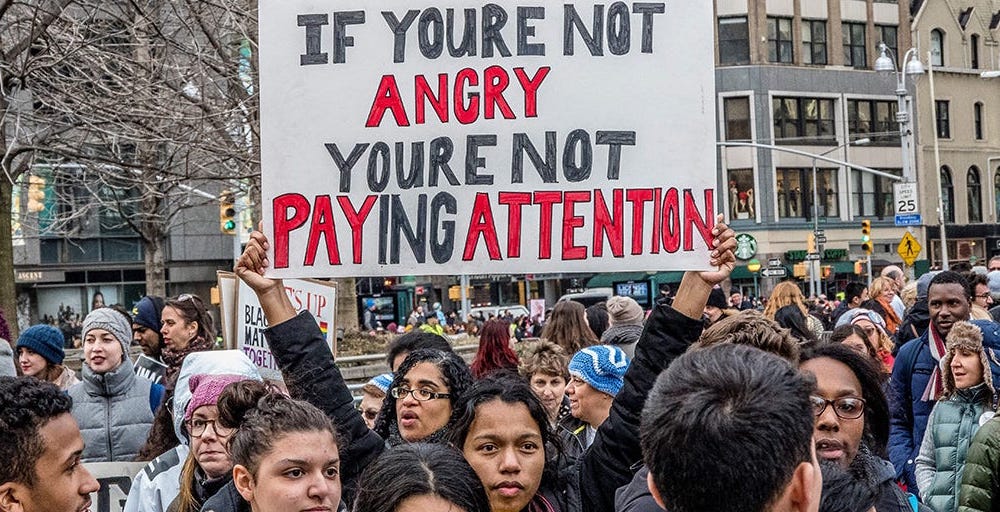By Kezziah Hernandez, Social Media Editor
New Year’s Resolutions are your chance to break bad habits or begin to strive, and or accomplish a personal goal; your ability to start fresh for this New Year.
This tradition we can see be dated back to Roman Mythology, at the time they named January, Janus after the Roman God. They named January, Janus due to Janus’s two faces one being able to look forward and one able to see in the back, to Romans this resembled the ability to see in the future and to see what was in the past. When the time came on December 31st they referred to his two faces, the one looking on to the past was to judge you ultimately for the New Year, in hopes to make up for their mistakes from the past year they would present Janus with gifts and making promises to be forgiven for their upcoming New Year. Thus, making the New Year’s Resolution Tradition we see today. It’s more commonly known for the Western Hemisphere but is also practiced in the Eastern Hemisphere.
The New York Post says, out of 2,000 Americans, it takes 32 days to give up on their New Years Resolution and 68% admitted to giving up on their resolution even sooner than the 32 days. The people who were surveyed had said they got stuck in their tracks due to the lack of self-discipline and it didn’t accommodate their busy schedule. Others say they fell under societal peer pressure, and some said they tried sticking to the “New Year New Me” agenda by telling their friends about their new change to feel obligated to follow through with it or had a friend tag along with them in the plan.
However, failing a new year’s resolution should not be something that people beat themselves over. We fail, we learn, we move on. Setting goals and failing is something everybody is afraid of with the following judgment that comes with their failure but no human is perfect and failure is what leads us to greatness and that’s something we all need to be made aware of.

































Natalie Dew • Mar 18, 2021 at 9:38 pm
March 18, 2021
Dear Corydon Editor,
In issue 6 (January 27, 2021), Kezziah Hernandez wrote an article titled “New Year New Me”. Throughout this article, Hernandez talked about the traditions of New Years and where they originated from. Mentioning the Roman god Janus, which January is named after, was extremely wise to do as it introduced the topic of the holiday and also gave very interesting information. Personally, I knew nothing about this Roman God and it gave me a new way to think of January. The idea of January being the time to look towards the future, yet to also look back at the past, is an extremely interesting perspective. Hernandez also gave statistics, stating that 68% of 2,000 Americas admitted to giving up on their resolution sooner than 32 days. This isn’t surprising to me considering I am part of that 68%. I believe New Year’s resolutions don’t do anything good, since it’s rare that people can actually stick to it for longer than two months. I believe everything is good in moderation, so if you feel like you constantly have to stick to something with no break, it causes you to give up on it completely after a short amount of time. Nonetheless, Hernandez’s article accurately talked about the holiday of New Years and brought new information to the table to see different points of view.
Sincerely,
Natalie Dew, Grade 12
Iza Zaldivar • Feb 4, 2021 at 9:57 pm
February 4, 2021
Dear Corydon Editor,
In Issue 5 (January 27, 2021), Kezziah Hernandez wrote an article titled “New Year New Me” In this article, she goes over the tradition of the New Years Resolution and its surprisingly long history. The idea dates back to as far as Ancient Rome, where offerings were made to the god Janus in order to make amends to the past years mistakes, and have a successful new year. Kezziah cites the New York Post saying that today, out of 2,000 Americans it takes 32 days on average for them to give up on their resolutions. It’s commonplace and often joked about that no one can really stick to their resolution but I find it very admirable that people keep trying year after year. Kezziah goes on to say that it’s okay if resolutions are abandoned and it’s important to move on. She states that “no human is perfect and failure is what leads us to greatness and that’s something we all need to be made aware of.” I completely agree with this, spending time wallowing in guilt or self pity doesn’t help anyone achieve anything. We as humans need to break down the stigma against failure and accept that change isn’t an easy thing to bring about, or will happen overnight.
Sincerely,
Iza Zaldivar, Grade 11
Wendy • Feb 4, 2021 at 9:57 pm
February 4, 2021
Dear Corydon Editor,
In Issue 5 (January 27, 2021), Kezziah Hernandez wrote an article titled “New Year New Me”. It is insane how many Americans try to set goals for the following year. It is even more hysterical that I did not know the New Year resolution origin story until today. I never realized how fascinating it was. I am fundamentally thankful that Hernandez thoroughly explained the origin.
It is true I also have participated in this New Year New Me motto. Unfortunately, it never works out for me. I am not ashamed to be in the category of 68% out of 2,000 Americans who admittedly gave up. The statement of “…no human is perfect and failure is what leads us to success…” is 100% true. I admire the fact that the writer mentioned this. People put their heart and soul into these resolutions. But, more often than not, it does not work out. Their devastation is unimaginable. It is lovely to see acceptance and kindness.
I suggest this year we attempt to alter our unconscious bias. If we fail. I suggest that we change our behavior and uplift one another. In a racial injustice country, we have to set our goals straight. In this day and age, we shall act on surplus self-discipline on our goal to result in a change.
Sincerely,
Wendy Ochoa, Grade 12
Sheccid Soto • Feb 4, 2021 at 4:04 pm
Dear Corydon Editor,
In Issue 5 (January 27, 2021), Kezziah Hernandez wrote an article titled “New Year New Me.” In this article I was informed about the history of New Year’s Resolutions and it’s outcome. What I enjoyed the most about the article was that I was able to know the real backgrounds and traditions of this ‘’new year new me’’ motto. There would be many times before a new year that I would set these long term goals and give myself an unrealistic time frame in which I was supposed to accomplish them. Torturing myself that I had to take huge leaps in order for me to get closer onto achieving my goal, little did I know the importance in taking baby steps and how those steps actually help you reach new levels of improvement along with realizing that the things you do everyday that don’t even seem to matter actually matter the most. I agree when you say that ‘’Failure is what leads us to greatness’’, Failure is something people should start normalizing because it’s what helps us learn from our mistakes and molds us into the person that we are today!
Sincerely,
Sheccid Soto, Grade 12
Jhoely Mora • Feb 4, 2021 at 2:21 pm
February 4, 2021
Dear Corydon Editor,
In Issue 5 (January 27, 2021), Kezziah Hernandez wrote an article titled “New year, New Me”. This article stood out to me because I can relate to the wanting to change some bad habits and do things that are beneficial for yourself. Everyone always reflects their actions on the past, many in hope of finding a new way to solve your problems or take things a different route for a better outcome. Based on what you said that, “2,000 Americans, it takes 32 days to give up on their New Years Resolution and 68% admitted to giving up on their resolution even sooner than the 32 days.” This is a big part of why so many people feel like their year is off to a bad start because they couldn’t commit to their goals. There are different ways of looking at things and a new year resolution isn’t meant for the first 30 days of the year. It’s meant to be accomplished little by little throughout the year. Our mentality and how we go about things is what needs to be changed in order to make all these other changes in our life. I kinda agree that, “We fail, we learn and we move on” but not a lot of people can fail and move on, we might learn something but some of us will continue to wonder why we weren’t able to do something. This can affect how far you set your goals and the path you take on getting there.
Sincerely,
Jhoely Mora, Grade 12
Camily Flores • Feb 3, 2021 at 11:27 pm
Dear Corydon Editor,
In Issue 5 (January 27, 2021), Kezziah Hernandez wrote an article titled “New Year, New Me”. This article caught my attention because I related to the feeling that the beginning of a new year always has that “new year, new me” feel. A chance to start over, to start fresh. I really enjoyed how you included the history of New Year’s Resolutions and how they came to be. I feel that one must know the true background of traditions in order to truly understand them. Over the years, I have set many New Year’s Resolutions but for one reason or another, I always failed to fulfill them. I would beat myself up about it and I realize now, that it’s okay to fail. I learned that for me personally, setting short-term goals instead of long-term goals helped me to actually accomplish them. I agree that a lot of us are afraid to fail and when we do, we feel discouraged to move forward. However, I think it’s essential that we become aware of the importance of failure and how it can be a positive thing instead of seen as negative. Setting goals can cause a lot of stress due to the pressure of attaining them but, once you reach that goal, the sense of relief and pride you feel is amazing.
Sincerely,
Camily Flores, Grade 12
[email protected] • Feb 3, 2021 at 12:42 pm
February 3, 2021
Dear Cordyon Editor,
In Issue 5 (January 27, 2021) Kezziah Hernandez wrote an article titled “New Year New Me”. In the article they wrote about new year resolutions and where they originally came from. It was very interesting to learn about the origin of New Year’s resolutions. I had never really stopped to think about why this was a tradition and where it came from. It’s pretty cool how a lot of our current traditions and beliefs can be traced down to Greek mythology.
Looking at the statistics saying that 68% of the 2,000 Americans gave up on their resolutions, I wouldn’t be surprised that more gave it up. Breaking a habit and starting new ones are very difficult and it takes many days for it to become routine in our daily lives. A resolution I tend to make every year is to read one book a month. With no surprises, I barely get through half the year (and that’s only if I’m lucky). I believe what makes these resolutions so difficult to accomplish is that they are overwhelming and are just too much all at once. Something that should be practiced more is creating one new resolution per month. Focusing on one task for 30 days straight would probably be less intimidating than working at 5 all at once. As said in the last paragraph of the article, “failing a new year’s resolution should not be something that people beat themselves over.” If one goal seems too overbearing at the moment it’s best to move on to a different one or try little goals that will lead you up to the big one.
Overall, this article was short yet had so much the reader can learn from it. I hope to read more similar to this in the future.
Sincerely,
Ximena Ramirez, Grade 12
Briana Sevilla • Feb 3, 2021 at 10:26 am
February 03, 2021
Dear Corydon Editor,
In Issue 5 (January 27, 2021), Kezziah Hernandez wrote an article titled “New Year New Me”. She wrote about the tradition behind New Year’s resolutions that can even be seen within Roman Mythology. She explains Roman Mythology’s take on the tradition and goes on to say that there is a Roman God, Janus, who has two faces that represent looking back into the past and judging you based on that, and another looking forward. In order to make up for past mistakes, people would have to bring gifts to please Janus. Kezziah also mentions that several people give up on their resolution after a month, if not less than that. As a person that makes a resolution to better myself for the upcoming year, I must say that I sometimes fall off of the path I say I want to keep up with. I enjoyed how Kezziah reminds us that falling through with our resolution isn’t the end of the world. We are human and as she states “We fail, we learn, we move on.”
Overall, this is a great, simplistic article. It was nice to see that the editor incorporated something from ancient times and connected it to the modern era. Some of the sentences were lengthy and kind of run ons. Besides that, Kezziah used evidence and cited her source for credibility. I definitely learned something new from this article.
Sincerely,
Briana Sevilla, Grade 11
Giancarlo Roldan • Feb 3, 2021 at 8:49 am
February 3, 2021
Dear Corydon Editor,
On January 27, 2021, Issue 5, Kezziah Hernandez wrote an article titled “New Year New Me.” It’s the fact that humans have been trying to do resolutions for this long that is funny. By nature, change and commitment is hard and it’s uncomfortable for us to make those changes willingly. “The New York Post” says, out of 2,000 Americans, it takes 32 days to give up on their New Years Resolution.” That means that if 100 of us were in a room together and each set an individual resolution, only about 68 would get past 30 days. The concept that people are so set in their ways and unwilling to change for long periods of time is shocking. In times of racial injustice and economic downfall, people must rise above their petty accomodations and really put in the effort if they want to see any change happen. I bring the sensitive topics up because I truly believe that if everyone worked to change their outlook on life, we would see some real change happen. So take it upon yourself to do your resolution, and change for the better.
Sincerely,
Giancarlo Roldan, Grade 12